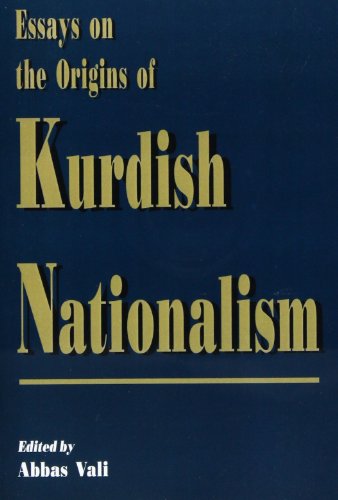
Book
|
Essays on the origins of Kurdish nationalism
-- Kurdish nationalism
Copies
1 Total copies, 1 Copies are in,
0 Copies are out.
Title
Essays on the origins of Kurdish nationalism -- Kurdish nationalism
Authors
Language
English
Published
Costa Mesa, Calif. : Mazda Publishers, 2003.
Publication Desc
234 p. ;
ISBN
156859142X
(alk. paper)
LCCN
2003044924
Series
Kurdish studies series no. 4
Dimensions
23 cm.









